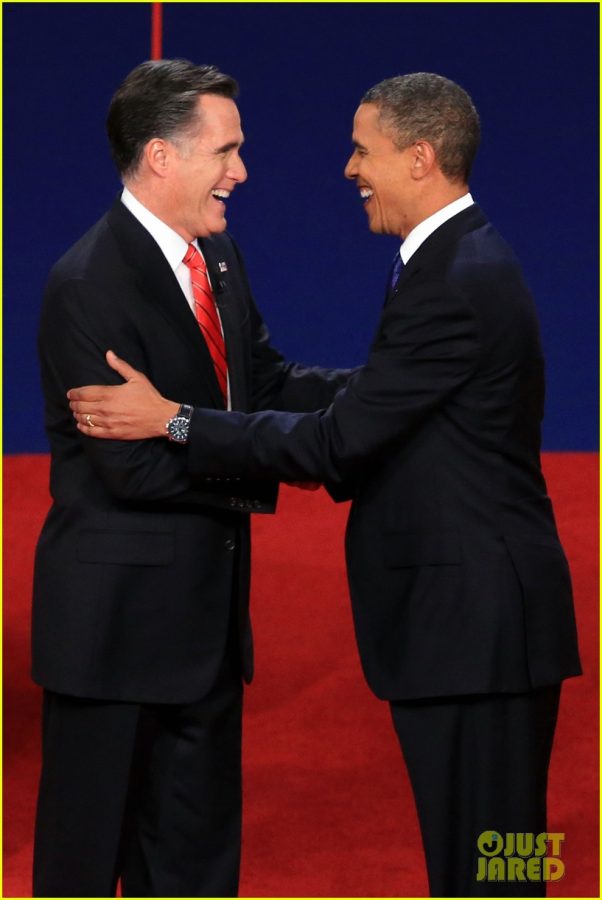With the Presidential election fast approaching, Barack Obama and Mitt Romney are locked in a tight race that could potentially be decided by the whims of a single demographic group. Historically, the most mercurial group of all has been that of 18-to 29-year-olds. 2008 saw the highest youth turnout of any modern election, and 68 percent of registered youth voted for Barack Obama. His message of hope and change resounded with idealistic first time voters.
However, given today’s high unemployment rate, stagnant economy and a palpable lack of enthusiasm, the turnout for 2012 may look more similar to 1996 or 2000, which saw youth turnouts of 37 percent and 38 percent respectively. But despite our apathy, there is in fact a vast dichotomy between Obama and Romney, and their policies will have dramatic effects in areas of critical importance to today’s students.
An obvious area which may be affected is employment. The high unemployment numbers of the past four years have been ubiquitous in contemporary political discourse. According to the Bureau of Labor Statistics’ most recent jobs report, the unemployment rate for those aged 20-24 is 15.2 percent, nearly double the national average—and trending upward.
President Obama addressed concerns over employment early in his term with his $800 billion stimulus, but the job market as a whole, and especially for recent graduates, has remained dismal. The BLS reported that 96,000 jobs were created in August, a meager amount even before considering that many of these jobs were temporary service industry positions.
The President’s much-discussed jobs bill will create an estimated 1 million new jobs, but these ostensibly infrastructure-related jobs would also be temporary and increase our already onerous spending burden. Furthermore, Obama’s plan to increase taxes for the top margin of income earners, including his proposed “Buffet Rule,” would be disastrous for small businesses.
Mitt Romney’s plan to tackle unemployment involves repealing much of Obama’s regulatory policy, curtailing government spending, and lowering tax rates across the board, including the top marginal tax rate to 25 percent and the corporate tax rate to the same, down from its current 35 percent—the highest in the industrialized world.
Policies concerning student loans and college affordability will going a long way in determining the outcome of this election and the subsequent tenure of the potential president. Despite the perpetually increasing costs of attending college and the mounting questions over the value of a degree, college affordability has been largely absent from either campaign.
The President’s website outlines a plan that would expand Pell Grants and cap federal student loan payments at 10 percent of the student’s income per year. This plan is reminiscent of the egalitarian notion of subsidization and broad access which led to the expansion and eventual collapse of the housing bubble. More money being taken out in loans, combined with decreased ability to pay them back is a recipe for disaster.
Mitt Romney has proposed lenient debt schedules for higher performing students as incentive, but has remained largely silent on the issue of college affordability. His website mentions opening the college landscape up to private groups by alleviating bureaucratic red tape. More competition yields lower prices, so this plan seems legitimate in theory, but its specifics are parsimonious.
At the beginning of his term, President Obama pledged to decrease the federal debt and cut the deficit in half. In practice, however, he has become the first president to accrue four consecutive trillion-dollar deficits. When the federal government is unable to meet its obligations, the fallout will be much greater than anything yet seen in Europe. The inevitable hardship of this looming crisis will be inflicted most severely on the next generation of Americans trying to make it in the workforce: today’s students.
Taking the traditional conservative approach, Romney has pledged to curtail spending significantly by means-testing entitlements. While America hasn’t been debt-free since the Jackson administration, we must be able to spend responsibly in order to assure financial sustainability.
The bloc of politically active 18-to 29-year-olds has been reliably liberal, and will likely go blue again this year. At the same time, many are beginning to recognize that the philanthropic notions of liberalism have severe consequences when applied to the real world. The American youth resoundingly and ebulliently supported Obama in 2008; their relative silence this time around speaks volumes about what has happened over the past four years.





















































